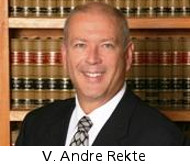Article from: www.thenewspaper.com/news/46/4613.asp
1/12/2015
California Appeal Court Finds Red Light Cameras Unreliable
Second highest court in California finds the questionable calibration of a red light camera rendered its evidence unreliable.
 Legal controversy continues to dog California's automated enforcement programs, despite the best effort of state lawmakers to encourage photo ticketing. The second-highest court in California decided Thursday that the red light camera program in Riverside "did not produce reliable evidence" in rejecting the $500 citation that Redflex, a private, for-profit vendor, had mailed to Viktors Andris Rekte.
Legal controversy continues to dog California's automated enforcement programs, despite the best effort of state lawmakers to encourage photo ticketing. The second-highest court in California decided Thursday that the red light camera program in Riverside "did not produce reliable evidence" in rejecting the $500 citation that Redflex, a private, for-profit vendor, had mailed to Viktors Andris Rekte.
Rekte, a lawyer, challenged the ticket he received for allegedly making a rolling right turn a split-second after the signal turned red at the intersection of Tyler Street and State Route 91 on October 26, 2012. Rekte argued the charge should be thrown out because the yellow light was illegally short; he was not provided a copy of the video evidence before trial; the photo ticketing vendor set up equipment in a way that obscured the view of the traffic signal; and the evidence produced by Redflex lacked a proper foundation.
Don Teagarden, a city employee, testified that he "reviewed" the ticket that Redflex sent to him. Since Redflex bills its service as a "turn key" operation, Teargarden proved to have little to do with the process. His direct knowledge of the evidence was limited.
"On cross-examination, operator Teagarden acknowledged he could not tell if the monthly inspections of the equipment conducted by Redflex included verification of the time intervals for the signal lights, and did not know if anyone employed by the city of Riverside checked to make sure the system was calibrated properly," Justice Manuel A. Ramirez wrote for the Court of Appeal majority.
Video proof showed the yellow time at the location in question lasted just 3.5 seconds, 0.1 seconds short of the minimum allowed for the intersection under California's rules. An expert witness also showed that the red light camera setup obscured 41 percent of the traffic signal light for someone making a turn.
In June, the California Supreme Court rescued red light cameras from a series of evidentiary legal challenges by accepting the state legislature's declaration that photo evidence must be presumed reliable. Here, the court majority was persuaded that Rekte had overcome the presumption with solid evidence of unreliability. The Redflex system said the yellow time was 3.65 seconds, when the video evidence proved the timing was actually 3.5 seconds. The system was, therefore, improperly calibrated.
"Where the opposing party produces evidence undermining the presumption, the presumption is disregarded and the trier of fact must decide the question without regard to it," Justice Ramirez wrote. "In other words, the other party is no longer aided by the presumption and must prove the fact in question."
The majority also expressed disapproval of the dangerous state of the intersection and declared the evidence produced by a questionably calibrated device inadmissible.
"An inadequate yellow light interval renders a safe stop impossible, and constitutes an emergency justifying the entry into an intersection when the signal turns red," Justice Ramirez wrote. "Because the digital images were previewed by Redflex before being forwarded to the Riverside Police Department, and because digital images are susceptible to manipulation, it was incumbent upon the city to introduce evidence that the printed representations were accurate. Otherwise, the images were inadmissible because they were not properly authenticated."
Riverside ended its red light camera program last year. A copy of the ruling is available in a 200k PDF file at the source link below.
Source: California v. Rekte (Court of Appeal, State of California, 1/8/2015)
Permanent Link for this item
Return to Front Page
 Legal controversy continues to dog California's automated enforcement programs, despite the best effort of state lawmakers to encourage photo ticketing. The second-highest court in California decided Thursday that the red light camera program in Riverside "did not produce reliable evidence" in rejecting the $500 citation that Redflex, a private, for-profit vendor, had mailed to Viktors Andris Rekte.
Legal controversy continues to dog California's automated enforcement programs, despite the best effort of state lawmakers to encourage photo ticketing. The second-highest court in California decided Thursday that the red light camera program in Riverside "did not produce reliable evidence" in rejecting the $500 citation that Redflex, a private, for-profit vendor, had mailed to Viktors Andris Rekte.